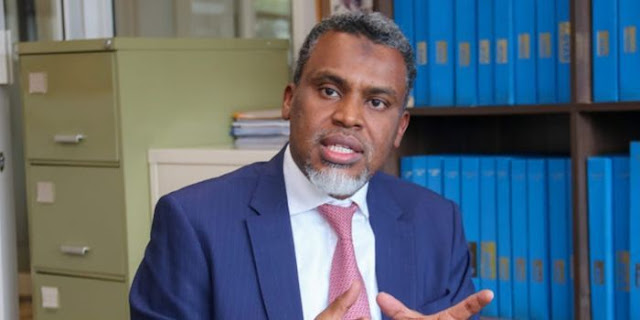Billions squandered by the Office of the Director of Public Prosecution under the supervision of Noordin Haji have drawn criticism from Auditor General Nancy Gathungu.
The National Government’s auditor general said in 2021–2022 that Ksh9 million in annual rent for unoccupied office space in Mombasa for staff members of a department cost the government money.
The report also said that the government wasted Ksh4 million on rent paid for vacant office space in Machakos; this matter was highlighted, but Haji chose not to address it.
According to an assessment examination, 75% of Mombasa’s office space remained vacant, costing the government an estimated Kshs 9,772,308 annually and Kshs 48,861,540 over the course of five years.
“A Machakos building’s office space was only three-quarters full, costing the government Ksh4,838,400 annually. By the beginning of the audit, no action had been taken on an internal letter from June 8, 2022, written to the Deputy Director of Public Prosecutions, which said that there was no value for money in renting space.
Under Haji’s direction, the Auditor General also discovered improper spending of up to Ksh1 million on compensation for overtime given to staff.
According to Gathungu’s report, the severance packages were illegally given out to workers since they were above job group J, which is against the Public Service Commission’s Human Resource Policies and Procedures Manual.
The report also said that the expense “was not substantiated by a work programme, a supervision report, an estimated number of hours worked, or an authorization of the head of the division or the accounting officer.”
Salary payments made to workers who continued to work over the legal limit prompted yet another question.
According to the investigation, an examination of the payroll and human resources records showed that seven workers who were appointed temporarily and paid Kah 1,665,358 did so for more than six months.
The Public Service Commission Act of 2017 provides that a representative may be assigned in an acting capacity for a term of at least thirty days but not more than six months, yet this appointment went beyond the legally required time limit. According to the study, the management broke the law in the given situation.
President William Ruto proposed Haji on May 16 for the position of Director-General of the National Intelligence Service (NIS).
The National Integrity Alliance (NIA), a group of civil society groups, protested the nomination on May 21, however, claiming that Haji had a corrupt past and had not upheld his constitutional duties while serving as the DPP.
Furthermore, they said that if the instances that the DPP dismissed had been successfully resolved, the governing party would have collected around Ksh11.3 billion.
In accordance with both the National Intelligence Service Act and the Constitution, the National Assembly must receive the application for the appointment before Parliament can consider it.















